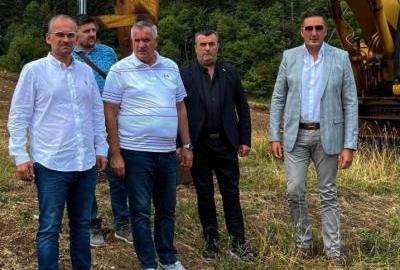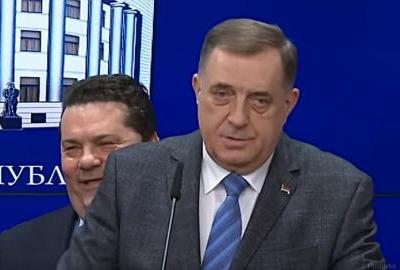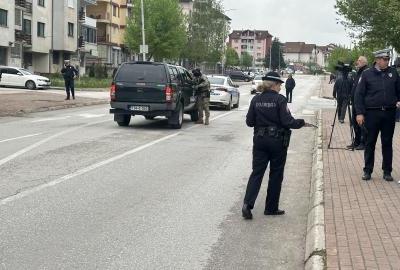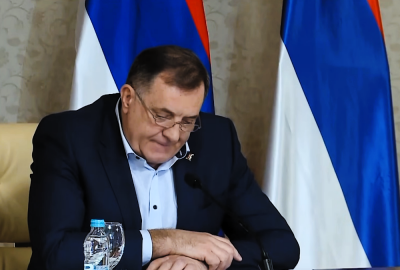Istražujemo
A GREAT BATTLE IN A SMALL COUNTRY: Russia, with the help of Dodik, will not easily relinquish the gas market in BiH
The TransAdriatic Pipeline (TAP), which connects Greece, Albania and Italy, became in mid-November finally operational. The next stage is the Ionian Adriatic Pipeline (IAP) to which Montenegro, Croatia and Bosnia and Herzegovina would connect. These routes supply gas from Azerbaijan and it will terminate the Russian monopoly in the supply of this energy-generating product. On the other side, Milorad Dodik is trying to keep our country dependent on the gas from Russia as long as possible.

Harald Jürgen Burger is a citizen of Germany. In August of last year he had registered two companies in Sarajevo - “BH Energy” and “Float Power”. Soon thereafter, he registered the company “BH Energy” in Banja Luka as well, together with two more companies– “International Project” and “GOBU d.o.o.”. There is some evidence of business operations at the end of 2019 for the latter, about thirty thousand Convertible Marks.
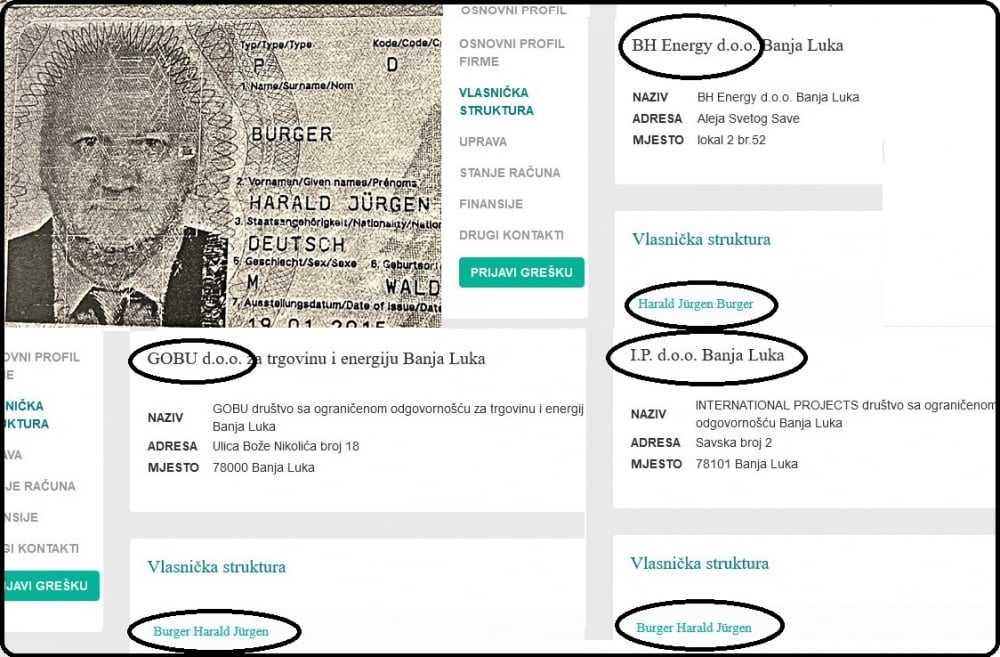
According to Žurnal’s sources he claimed that he wants to invest in the gas processing and sales sector. Allegedly he wanted to buy “Prvo gasno društvo” from Zvornik, a company that makes and sells compressed natural gas (CNG), assuring that he has got money and good relations in Russia to buy gas at the lowest price.
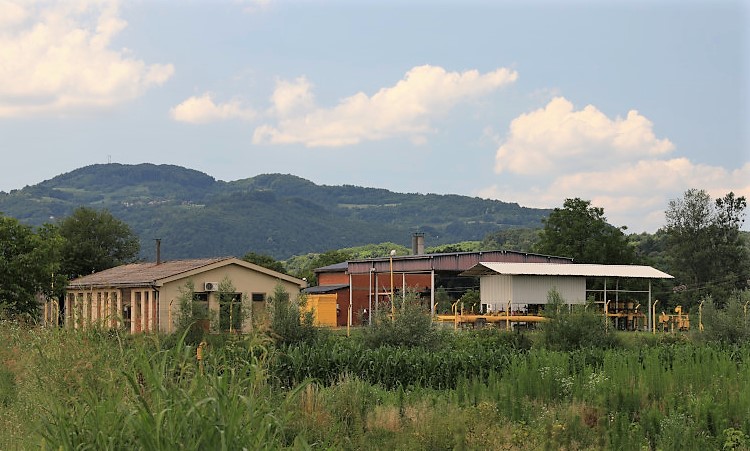
DID NOT PAY THE RENT
“The most common sentence of all intermediaries is that they have a direct connection with Putin. He said he needed an operating company with educated personnel. I gave him the balances and got him in touch with the owners to discuss value. They did not reach an agreement, they each went their separate ways, I did not see him again”, said for Žurnal director of “Prvo gasno društvo” Dušan Kozić.
Žurnal tried to contact Harald to ask him why he wanted to invest in gas processing and sales sector in Bosnia and Herzegovina. The number, which according to our sources he quite recently used, has not been active. There was neither a phone number nor an e-mail address in the company register. We visited locations of three companies in Banja Luka registered in the court register. There is a house at the address of company “Gobu” in which, according to the neighbors, no one has lived for years. The house listed as the main office of the “International Project” is also empty. There was no company logo at the building number where “BH Energy” should be located. We finally learnt the phone number of the sister of the person listed as the director of one of these companies. She promised to forward our contact request, noting that Burger is not in BiH and that he anyway does not want to communicate with the media. There was no response.
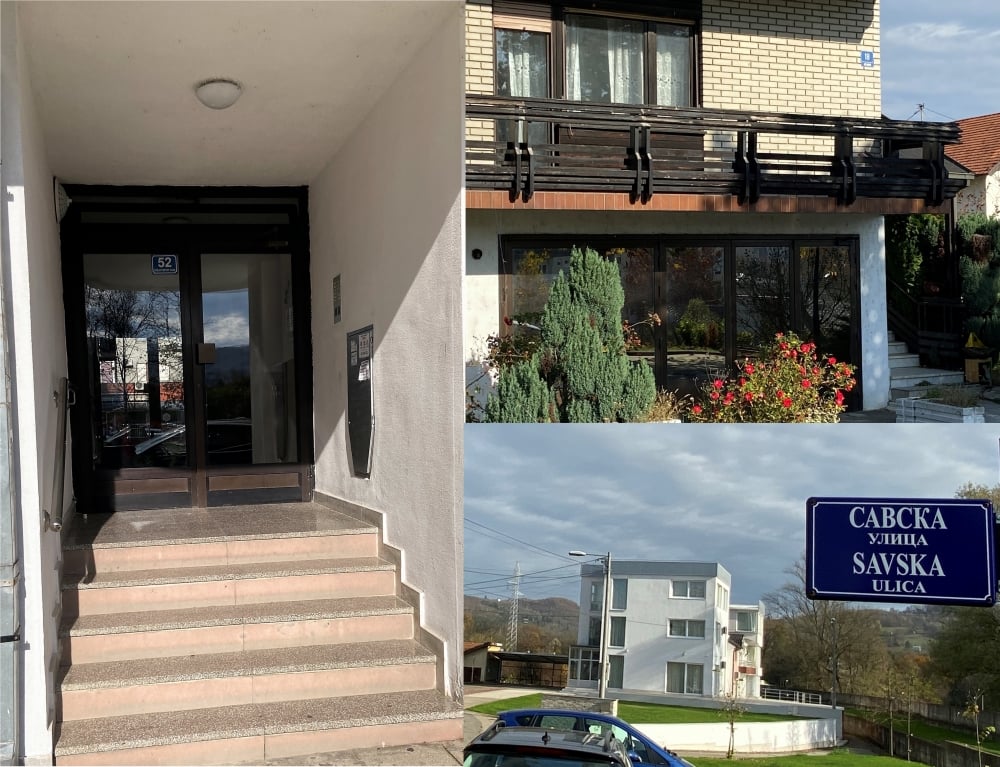 Locations in Banja Luka
Locations in Banja Luka
The address of companies registered in Sarajevo is identical to one where the main office of the company of the former FBiH Prime Minister, Edhem Bičakčić, is located. We ask him about relationship with Harald Burger, if he was truly a real investor.
“He is no longer located here. He said that a retired director of a gas company from Germany, who probably cooperated with Russia, is working with him. He waved millions and billons around, went to Pale to allegedly buy a company, and in the end did not pay two rents”, said Edhem Bičakčić laughing.
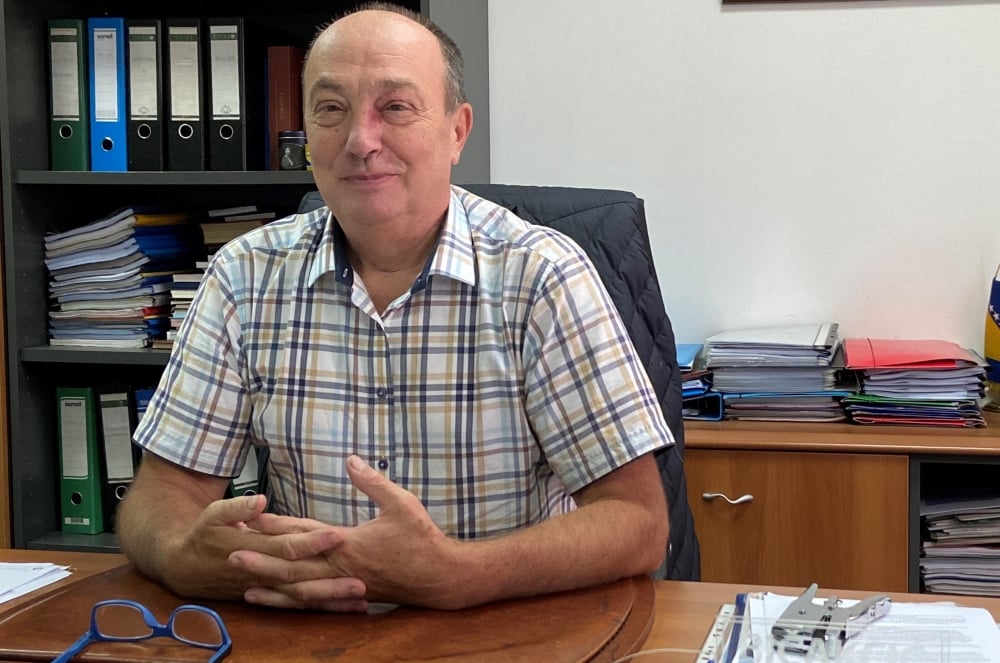 Edhem Bičakčić
Edhem Bičakčić
We discovered that Harald Jürgen Burger has a company in Switzerland “Float Schweiz Vermögensverwaltung AG” registered for energy-related investment operations, which does not have any business activities. Žurnal’s interlocutors who had met him claim he inquired about the possibility for transferring a large amount of c ash from Russia to BiH, and that he used to transfer tens of thousands of Euros in a day. He even asked if there was a small local bank he could buy!?
Obviously well acquainted with certain relations, he asked for a meeting with Gordan Pavlović, owner of “Pavgorda”, and Zoran Stevanović, mayor of Zvornik, but it is not known if the meetings took place. Ultimately, as our sources state, he inquired if there was any possibility of “passing” a gas pipeline through Šepak to Bosnia and Herzegovina and what would be the price of the person who should approve it!?
The emergence of “investors” like Harald Burger is not unknown, but it is interesting that this is happening in the gas sector, where different interests and slightly “stronger players” and companies dominate, about which Žurnal has recently wrote.
NEW GAS PIPELINE
Nobody advised Burger that the information on finding a way around to “passing” a gas pipeline to the country should be sought from Milorad Dodik, the current master of everything that is happening in Republika Srpska, as well as from the retired Croatian General Ivan Čermak, the owner of the company “Crodux”, which is now “passing” a gas pipeline from Croatia to Bosnia and Herzegovina near Brod.
“We thank Putin for recognizing the project for Brod”, exulted in mid-2019 the then-President of Republic of Croatia Kolinda Grabar - Kitarović, after signing of the Agreement for the project “Supply of natural gas to Oil Refinery Brod”. Everything was done under the pretext that the gasification of refinery will reduce pollution it produces and endangers the territory of Croatia, primarily Slavonski Brod. It will turn out that it was just an excuse to circumvent participation of the institutions of Bosnia and Herzegovina in the process of giving the consent to the connection to the gas system of Croatia.
 Kolinda Grabar-Kitarović and Vladimir Putin
Kolinda Grabar-Kitarović and Vladimir Putin
It was said that the product pipeline built in 1968 for the Refinery Brod will be used, and that a new intergovernmental agreement is not needed as it is an internal connection.
“Unfortunately, everything that is not appropriate for any other part of the world can happen in BiH, and worst of all, the neighbors, whose mouths are full of progress and cooperation with BiH, use every opportunity to inflict additional damage on this country. Here we see that practically an intergovernmental agreement is concluded between Croatia and a company in BiH, without the consent of BiH institutions, the Council of Ministers, gas companies in BiH”, said then to AJB the former director of the EP BiH, energy engineer Amer Jerlagić.
The agreement with the company “Crodux” sets forth that the Oil Refinery Brod, i.e. its owner “NeftGazinKor” managed by the Russian “Zarubezhneft”, will pay the costs of capital investments in gas pipeline, and will be supplied with the gas that “Crodux” gets – from Russia for the next ten years.
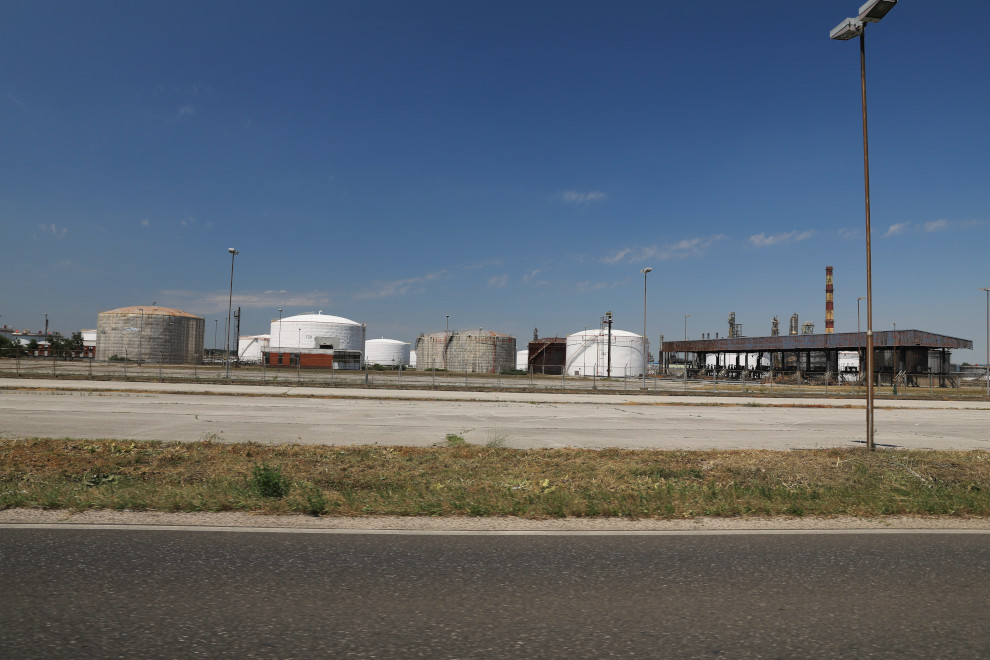
It will turn out, a year later, that “Crodux” will not use the old product pipeline, but will lay a new gas pipeline. As experts in this field told Žurnal, instead of announced diameter of Φ200, it will have Φ400, which is much more than the refinery needs. Such a pipeline can literally be considered as a branch of a new gas pipeline that enters BiH from Croatia.!
“First it was said that Refinery will be supplied through the product pipeline from Croatia with 3 bars internally, but subsequently we learned that there was a slightly larger pipe profile and I see it as another branch and entry of the gas from other direction to BiH. I don't see anything wrong with that, but of course “BH Gas” and “GAS-RES” firstly need to harmonize the legislation, because it is still crossing of the state border and supply of the gas. The existing regulations should be harmonized with that desire,” says Dušan Kozić, director of “Prvo gasno društvo” from Zvornik. First Gas Company "from Zvornik.
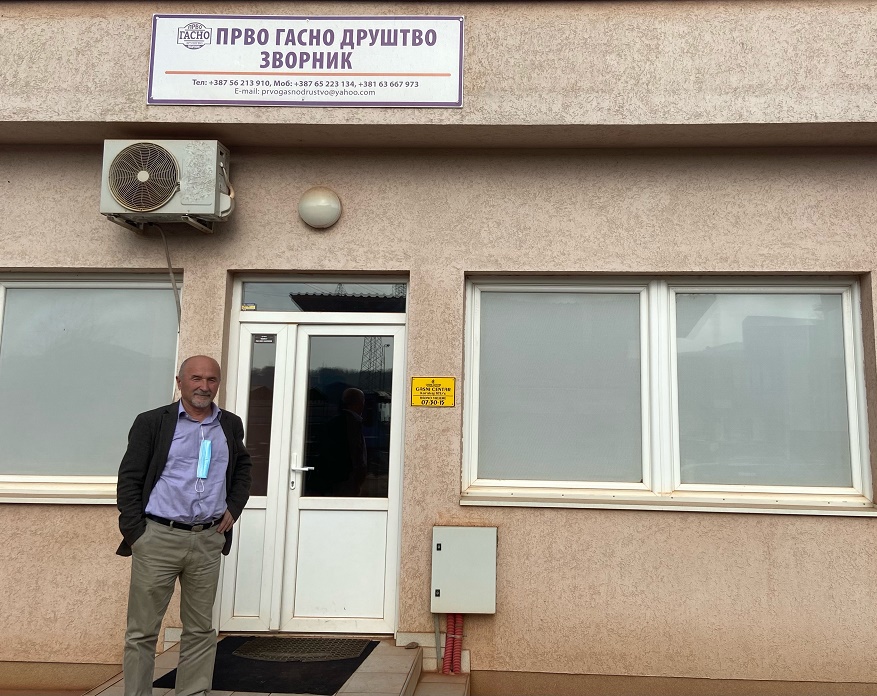 Dušan Kozić
Dušan Kozić
GETTING IN THROUGH THE BACK DOOR
Milorad Dodik, who has been opposing Brod-Zenica gas pipeline construction project for years, does not seem bothered by this entry “through the back door” of the Croatian gas system, as it favors the “Russian brothers”.
The announcements that the gas pipeline from Brod could be extended to Derventa also show that there will be more gas than the Refinery Brod really needs. At the same time, Zarubezhneft announces that they will build a compressor station in the refinery, and they would transport the produced compressed gas to the Refinery Modriča, which they also own. Russia’s wish is Dodik’s command, so an amendment to the RS Law on Gas has been announced, in order to enable these projects, about which Žurnal has recently wrote.
At the same time, Crodux will benefit from the practically new gas pipeline by (re)selling gas to the refinery, followed by “Plinacro” - Operators of the gas transport system of the Republic of Croatia, and “NeftGazinKor”, which will secure cheaper energy-generating product for Refinery Modriča as well, and revenues will come from extension of the gas network from Brod and beyond.
Dodik is still insisting on construction of a gas pipeline from Banja Luka to the border with Serbia, exclusively on the territory of Republika Srpska. It will be interesting to see if the construction of the South Interconnection pipeline from Zagvozd in Croatia, through Posušje to Novi Travnik, which will be using gas from Azerbaijan, will still continue to be obstructed. Its construction would mean the end of Russian gas monopoly not only in BiH.
“It is known that Azerbaijan is building a south wing of the gas pipeline that should end in Italy, with a branch to Montenegro, through which it will go to Republika Srpska and BiH. We have talked about it and said that there are no problems with the construction”, said Milorad Dodik a year ago after meeting the president of Azerbaijan Ilham Aliyev.
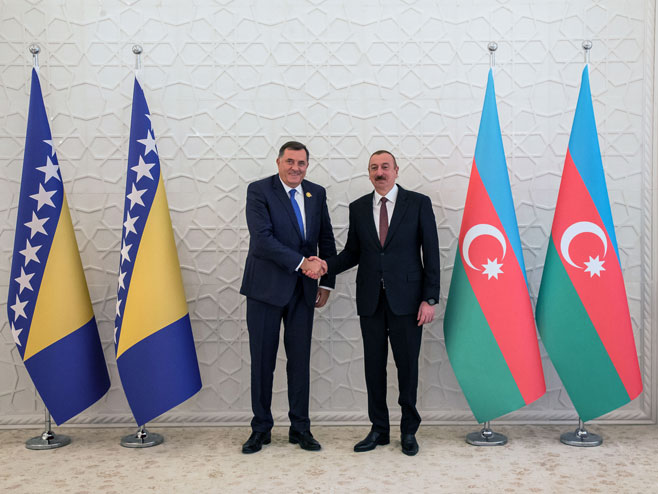 Ilham Aliyev and Milorad Dodik
Ilham Aliyev and Milorad Dodik
But, Dodik subsequently added that Republika Srpska will get gas supply from Azerbaijan – through Montenegro. Now it is clear that this combination will not happen. Azerbaijan gas will enter BiH through Croatia, via Zagvozd - Posušje - Novi Travnik route.
The main problem is the fact that there is still no central Law on Gas. Everything is done by an agreement between “BH Gas” and “Gas-Res” and significant time is lost to achieve common perception. That umbrella law on gas should be passed even if it would entail daily negotiations to speed everything up. TurkStream and the gas pipeline through Zagvozd to Novi Travnik should be given a chance, and misunderstandings for the one coming from Slavonski Brod to Brod should be eliminated, and it should be also given a chance... However it should be an official connection to BiH if there is intention to extend it further”, says Dušan Kozić.
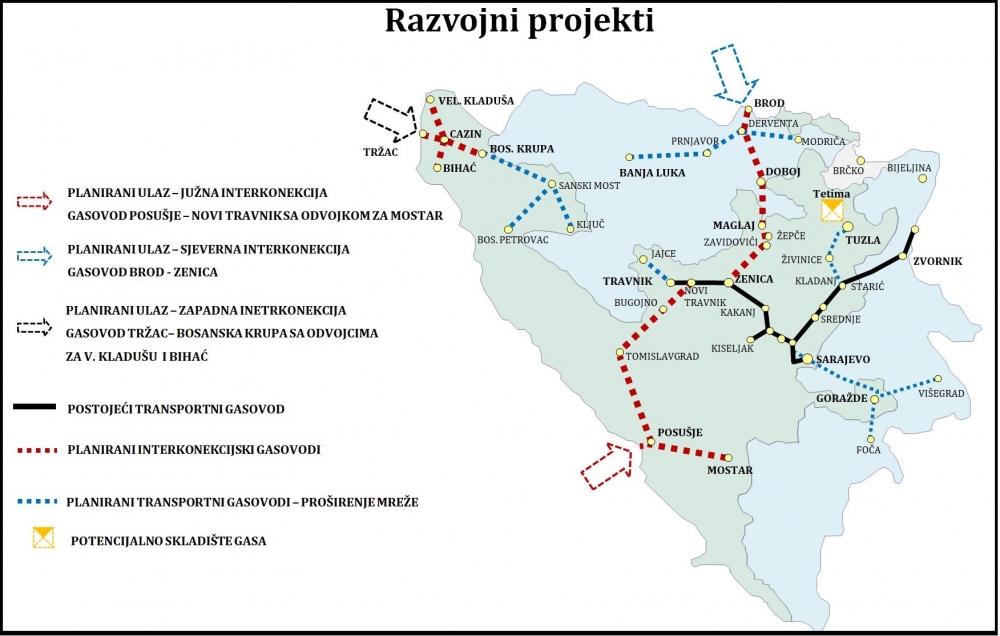
WHO LAID THE THIRD PIPE
It is almost forgotten that there is a gas route to Novi Travnik - the one from Zenica. This pipeline has not been used although seven years have passed since works worth about 40 million were completed. It still does not have an operational license. The investor “BH-Gas” and the contractor, Zagreb based company “Monter SM”, have been parties to a court case for the last four years. The contractor was not paid the agreed amount, while “BH-Gas” states that they do not even know who laid the third pipe outside the project and why, at what depth it was all laid and several other shortcomings. After many years of disputation over which party to the dispute will appoint an expert witness, a Solomon-like solution was found, that an independent expert witness will be appointed by the arbitral tribunal! The interest in expanding the gas network in this area subsided due to the years-long wait. The long wait has also subsided interest in expanding of the gas network in this area to subside.
“Several investors have so far expressed interest in the given project, but we still haven’t received a concrete bid. The Ministry of Economy had during this year held several meetings with the mayors of respective municipalities in order to reach an agreement on solution for implementation of the gas distribution system construction project and its management. The municipalities expressed the interest to establish a public enterprise, at the level of four municipalities, which should manage gas distribution and supply in the respective area,” stated the Ministry of Economy of Central Bosnia Canton for Žurnal.
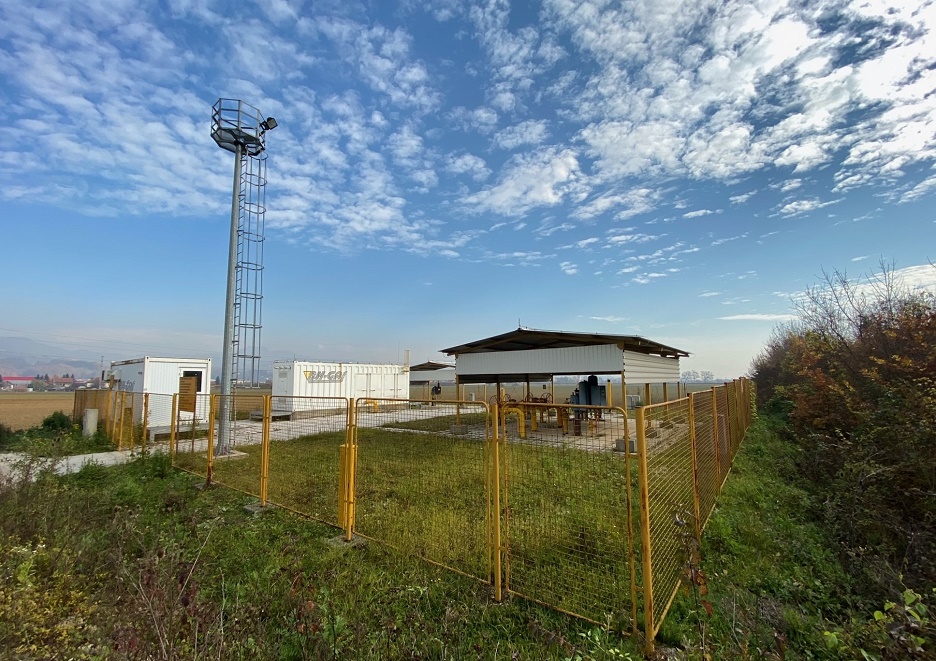 Gas pipeline Zenica-Travnik
Gas pipeline Zenica-Travnik
We said that the gas from Azerbaijan will come to BiH through Croatia via route Zagvozd – Posušje – Novi Travnik within which a branch to Mostar is also planned. Gas in Mostar, primarily for Aluminij, but the one from Russia, was part of the plan devised by two companies “Prvo plinarsko društvo” (PPD) from Croatia and “Erdal d.o.o.” owned by “Coast Line Commodities” registered in Malta.
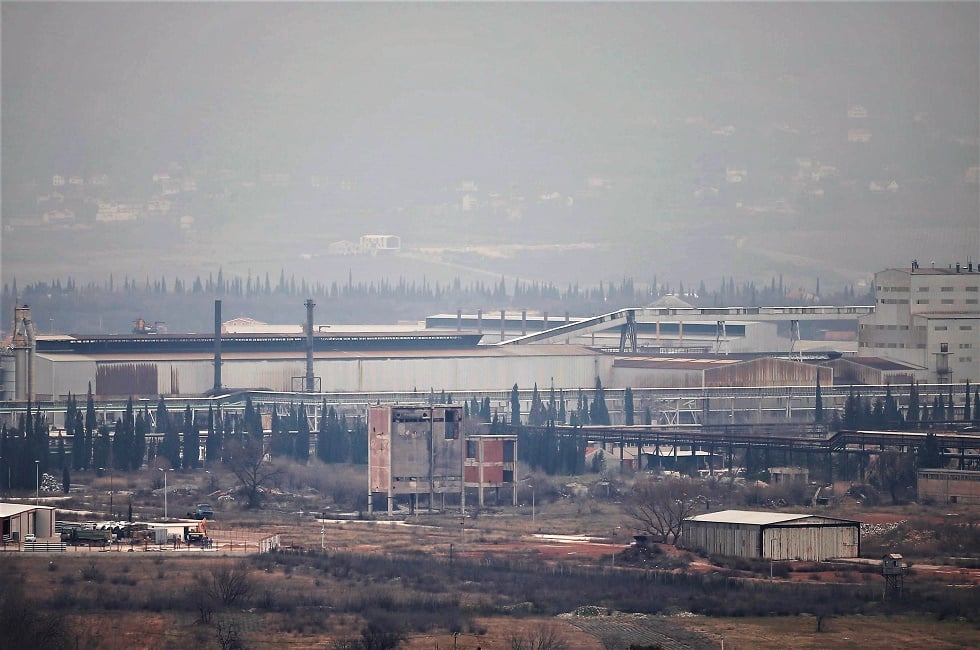 Aluminij Mostar
Aluminij Mostar
Žurnal wrote about their intention to take over Mostar Aluminij, all in connection with the capital from Russia. PPD, which operates under the group “Energia naturalis” from Vukovar, is owned by Pavlo Vujnovac. It is one of the most successful companies in Croatia, which progressed on its path to success by cooperating with Gazprom i.e. by 10-year contract on import of Russian gas to Croatia. However, while Aluminij was working, they used its business extensively, on the principle of “sell expensive, buy cheaper”. Thereafter, instead of becoming partners or saviors of Aluminij, they became its creditors.
“We will stay to work in Bosnia and Herzegovina,” assured PPD and Erdal in a letter sent to Žurnal in November 2019. A few months later, they abandoned the trade in liquefied petroleum gas (LPG) and petroleum products, and their license for that activity was revoked.

DECISION
1. The Operating permit (license) for LPG trading number 06-03-514/87/16 issued by the Decision number 06-03-514-04/87/16 of July 20, 2016 and amended by the Decision number 06-03-30-06/5/18 of February 2, 2018 is permanently revoked for the license holder ERDAL d.o.o.
2. Regulatory charges, which the license holder is obligated to pay for the fourth year of license validity, set forth in points 4 and 5 of the Decision number 06-03-30-06/5/18 of February 2, 2018, has been calculated for the license validity period, and amounts 1.200 KM.
3. This decision is final, and shall be published on the bulletin board and the website of the FBiH Regulatory Commission for Energy and its operative part shall be published in the Official Gazette of the Federation of BiH.
4. The Decision number 06-03-514-04/87/16 of July 20, 2016 by which Operating permit (license) for LPG trading number 06-03-514/87/16 was issued and the Decision number 06-03-30-06/5/18 of February 2, 2018 by which the license was amended shall become ineffective on the day this decision enters into the force.
Posušje – Mostar - Novi Travnik, Tržačka Raštela–Bihać - Velika Kladuša - Bosanska Krupa, Banja Luka - Bijeljina, Banja Luka - Novi Grad, gasification of Jajce, Donji Vakuf, Bugojno and Gornji Vakuf -Uskoplje are some of the project that are part of the plans in the gas sector of Bosnia and Herzegovina.
The problem is that even when there is money for certain projects, political inconsistency and lack of legislation at the state level pose a problem. This difficulty often repels real investors and attracts “investors” like Harald Jürgen Burger from the beginning of this story.
(zurnal.info)





